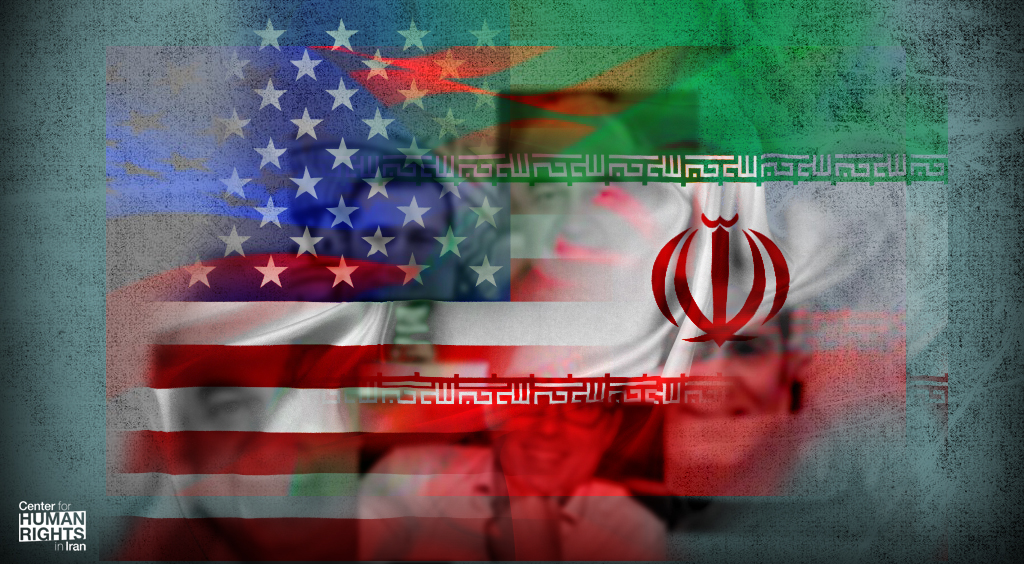Freeing Hostages is Good, Preventing Further Abductions by Iran Would Be Better

September 27, 2023 — The release of the five American hostages held in the Islamic Republic of Iran is a welcome development. The imprisonment of these individuals, long-held unlawfully in the country, was a complete travesty of every international legal and ethical norm. Yet there are a number of concerns regarding the deal the Biden Administration struck with Iran to free them.
The first concerns the many dual nationals and foreign nationals who have been left behind and remain as hostages, imprisoned by the Iranian government (typically on manufactured espionage charges) to be used as political and financial bargaining chips.
The full number of detained foreign and dual nationals in Iran is unknown since many of the families of detained individuals avoid any publicity, fearing this will endanger their release. Research published in 2022 estimates that at least 66 foreign and dual nationals have been detained by Iran since 2010. These individuals are denied consular visits, which are required under international law, and to the dismay of their desperate families, remain behind bars.
Second, it is uncertain that the $6 billion in unfrozen funds will be used only for humanitarian purposes. The Biden administration says it will make sure the funds are used exclusively for humanitarian goods, but they have subcontracted direct monitoring to the Qatari government and banks. There needs to be full transparency; the Biden administration should publicly provide records of every expenditure from these funds and ensure that Qatari banks are fully following the requirements.
This money belongs to the Iranian people, not the government that has been killing and imprisoning them, and the Iranian people urgently need this money for food, medicines, and other humanitarian items. This is a citizenry in great economic distress, yet we do not see Iranian government policies focused on helping them. Instead, we see well-armed Islamic Republic security forces and regional clients. If the Iranian government has money it has made clear what its priorities are: violent repression and regional adventures.
Third, the deal does not effectively address the imperative to raise the costs to Iran of hostage-taking. Without this, more dual and foreign nationals will be abducted. The Biden Administration says it is going to work to put an end to the Islamic Republic’s continuous hostage-taking but the deal does not take any steps to do so. Coordinated multilateral action and policies that bring together many countries to impose meaningful costs on Iran for its hostage-taking is urgently needed, and the Biden administration should take a leadership role in this.
For example, the administration, along with the Canadian and European governments, should encourage more countries to sign the Declaration Against Arbitrary Detention in State-to-State Relations that Canada initiated in February 2021, which the US supported along with 69 other countries. This declaration should be highlighted at the UNGA. If 70 countries bring together their political muscle, and join in a united front against the Islamic Republic’s hostage-taking, the Iranian government would take note. If Iran continues its hostage-taking, countries could also commit to jointly pulling their ambassadors in protest. If dozens of countries recalled their ambassadors in protest, that would shake the Iranian government and make them realize it has a cost to pay.
If each government continues to negotiate over its prisoners individually, and never joins in a united front that significantly raises the costs to Iran of its hostage-taking, such deals are going to be relevant to these individual’s release, which is good news, but they will never address the Islamic Republic’s continuous use of hostage-taking as a foreign policy tool. Indeed, they will encourage more of it.
When I talk to people in all walks of life inside Iran, there is much bafflement over this deal—and its timing. The Biden administration handed the Islamic Republic a huge propaganda victory: on the very anniversary of the killing in state custody of 22-year-old Mahsa Jina Amini, days after she was arrested for an allegedly improper hijab, the Iranian government can tell its people that not only can it repress, maim, kill, and torture its own people, they can also manipulate international relations to get access to significant funds.
This deal also coincides with the UNGA, which is a very important moment in international relations. The Iranian people want to see Member States at the UN focused on the Independent International Fact-Finding Mission on the Islamic Republic of Iran, established in November 2022 to investigate the government’s crimes against peaceful protesters during the “Women Life Freedom” uprising, and directly question the Iranian government as to why it is not cooperating with the mission.
Meaningful support for and solidarity with the Iranian people must be a cornerstone of foreign policy toward Iran. The president of Iran is a perpetrator of crimes against humanity and the government has carried out widespread killings and atrocities against women, children, and peaceful protesters—every UN member state should be taking note of this and condemning it.
Hadi Ghaemi is the founder and executive director of the New York-based independent and nonprofit Center for Human Rights in Iran






